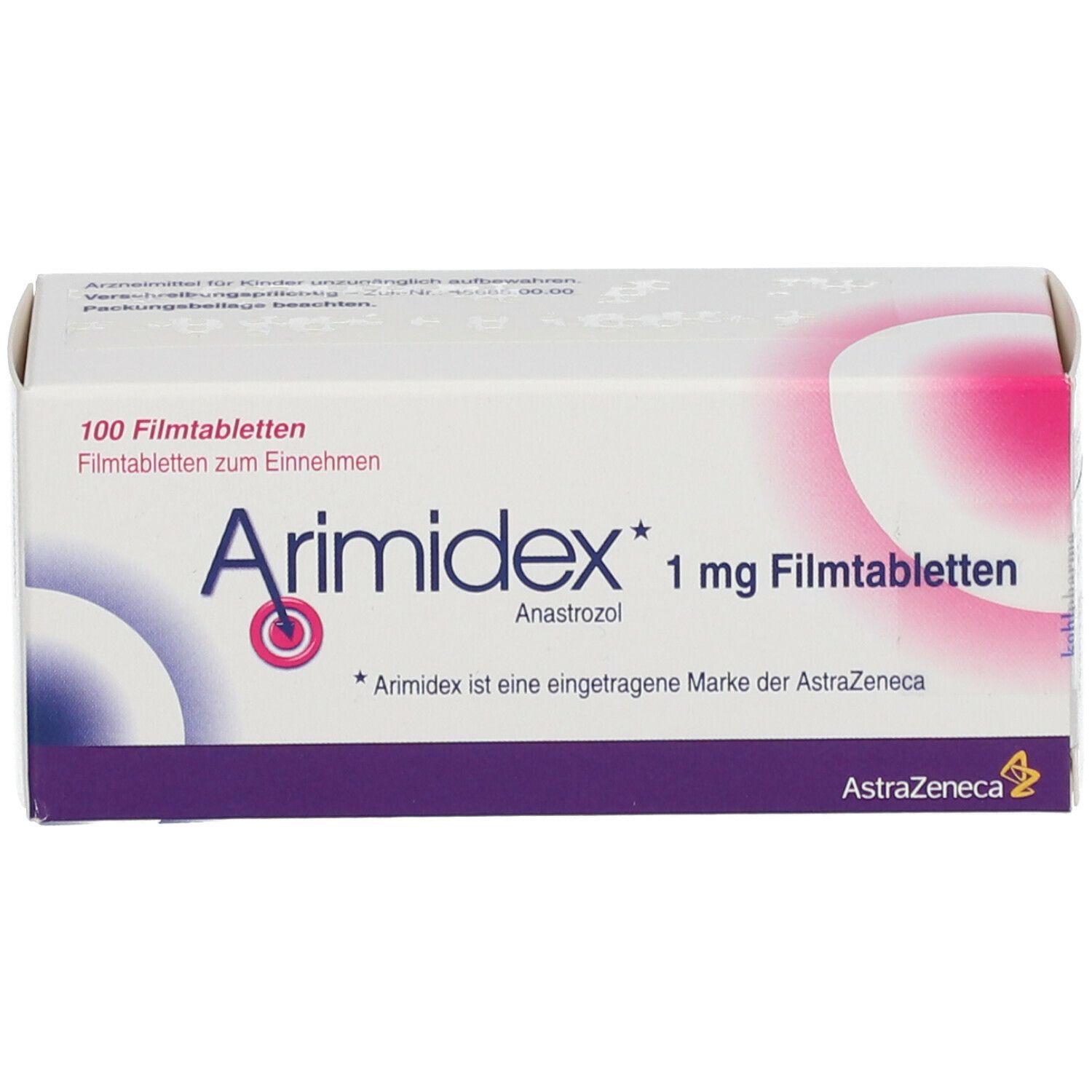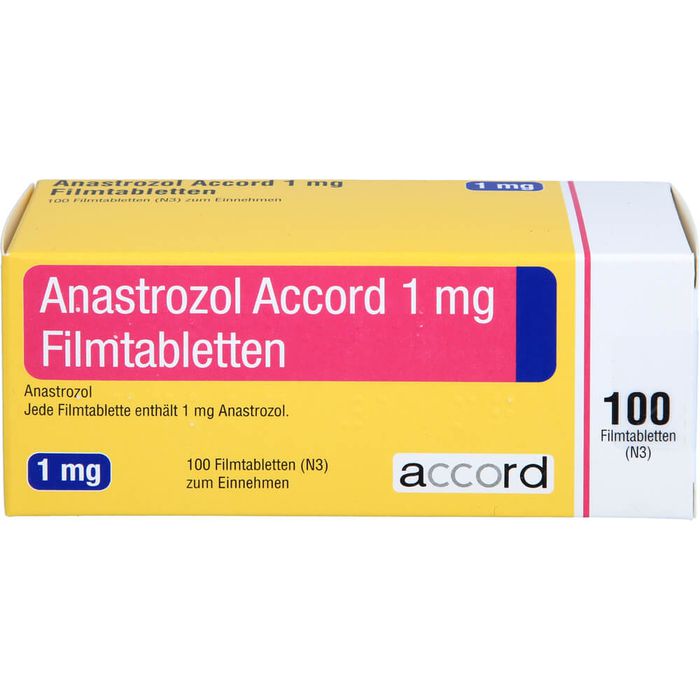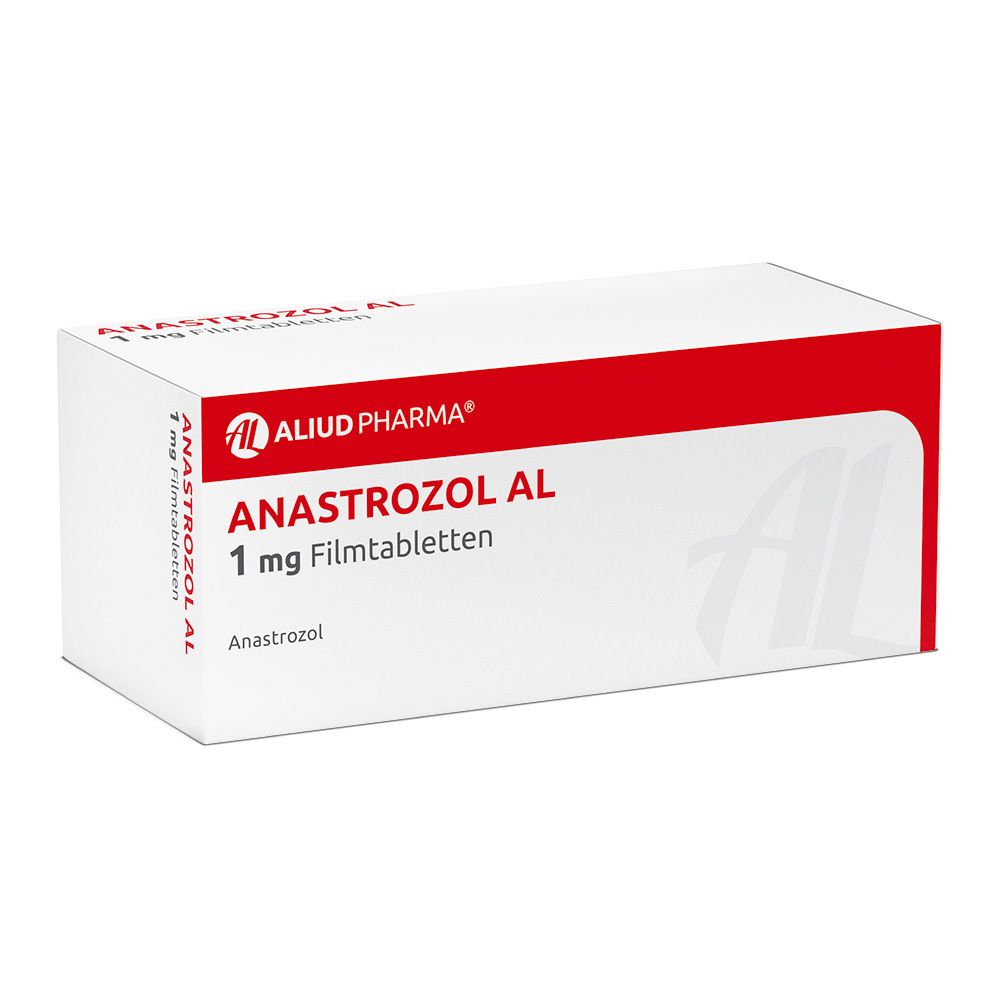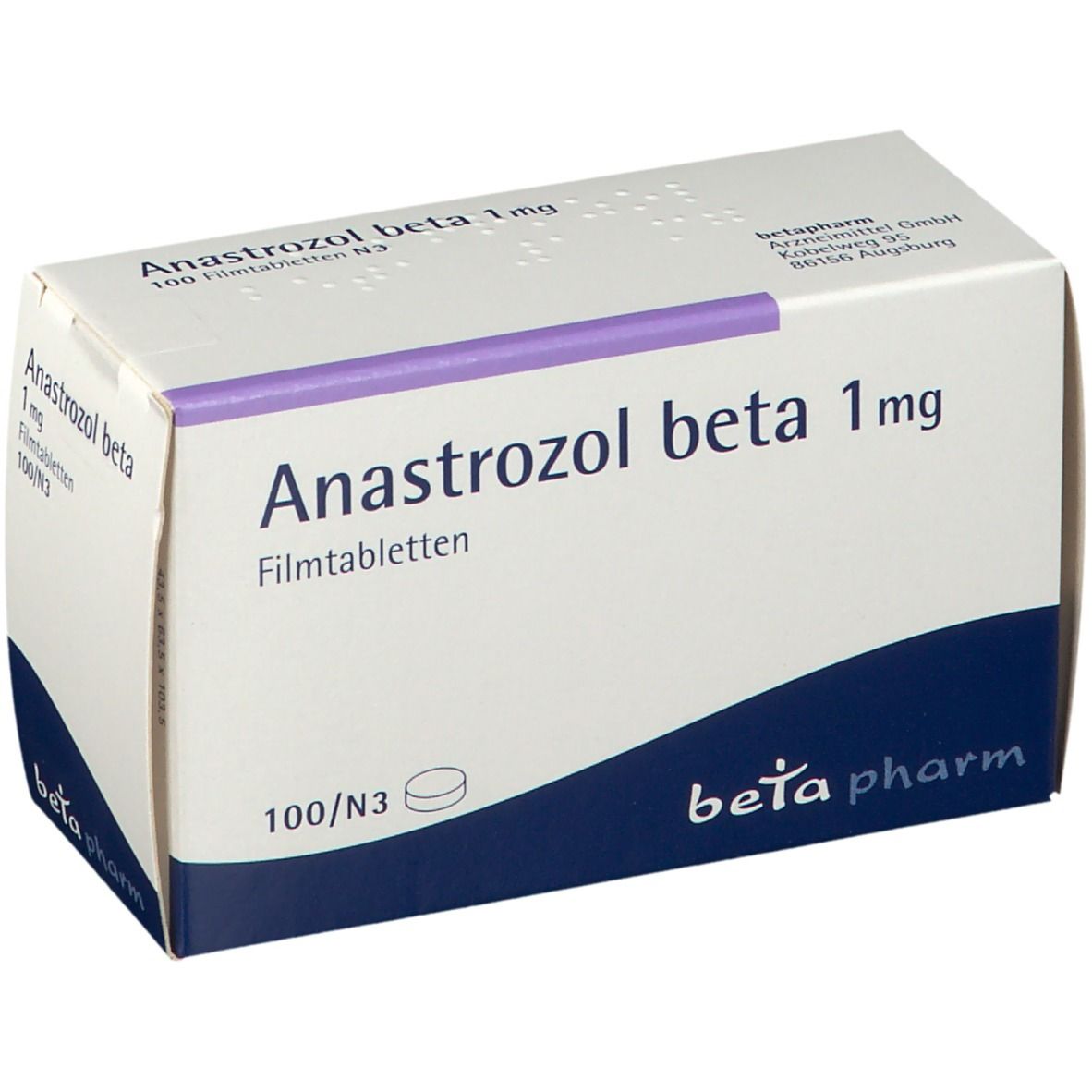Description
Arimidex is used in the treatment of early stage breast cancer in hormone-receptor positive postmenopausal women and in the treatment of advanced breast cancer in postmenopausal women.
Contraindications:
Arimidex is contraindicated in the following cases:In premenopausal women, in pregnancy and lactation, in patients with severe renal impairment, in patients with moderate or severe hepatic impairment, in patients with known hypersensitivity to anastrozole or any of the ingredients in its formula.
Warnings/Precautions:
Since the safety and efficacy of Arimidex in children have not been established, its use is not recommended.
If there is any doubt, it should be confirmed by laboratory tests that the patient is in menopause before treatment.
There are no data to support the safe use of Arimidex in patients with moderate or severe hepatic impairment or in patients with severe renal impairment. At the beginning of treatment there may be impairment in tasks requiring attention, such as driving. Pregnancy and lactation: Arimidex is contraindicated in pregnant or lactating women. Effects on the ability to drive and use machines: Arimidex does not impair the ability of patients to drive or operate machinery. However, asthenia and drowsiness have been reported with the use of Arimidex, so care should be taken if such symptoms occur.
Side effects/adverse effects:
Arimidex is generally well tolerated. Side effects are mostly mild to moderate. Only in very few cases has the use of the medicine been discontinued because of undesirable effects. Some expected effects may occur due to the pharmacological action of Arimidex. These include hot flushes, vaginal dryness and hair loss. Arimidex may cause gastrointestinal disorders (such as anorexia, nausea, vomiting and diarrhea), asthenia, joint pain/stiffness, drowsiness, headache and skin rash. Vaginal bleeding has rarely been reported in the first few weeks, mostly in patients who have been previously treated with a hormonal therapy. If bleeding persists, further evaluation should be considered. May cause a slight increase in total cholesterol levels. No causal relationship has been established between thromboembolic events and anastrozole. Although the frequency of thromboembolic events in clinical trials did not differ significantly between anastrozole 1 mg and megestrol acetate, it was lower with anastrozole 10 mg. Hepatic changes (elevated gamma GT or, less commonly, elevated alkaline phosphatase) have been reported mostly in patients with advanced breast cancer with liver or bone metastases. No rationale has been established to explain these changes.






Reviews
There are no reviews yet.